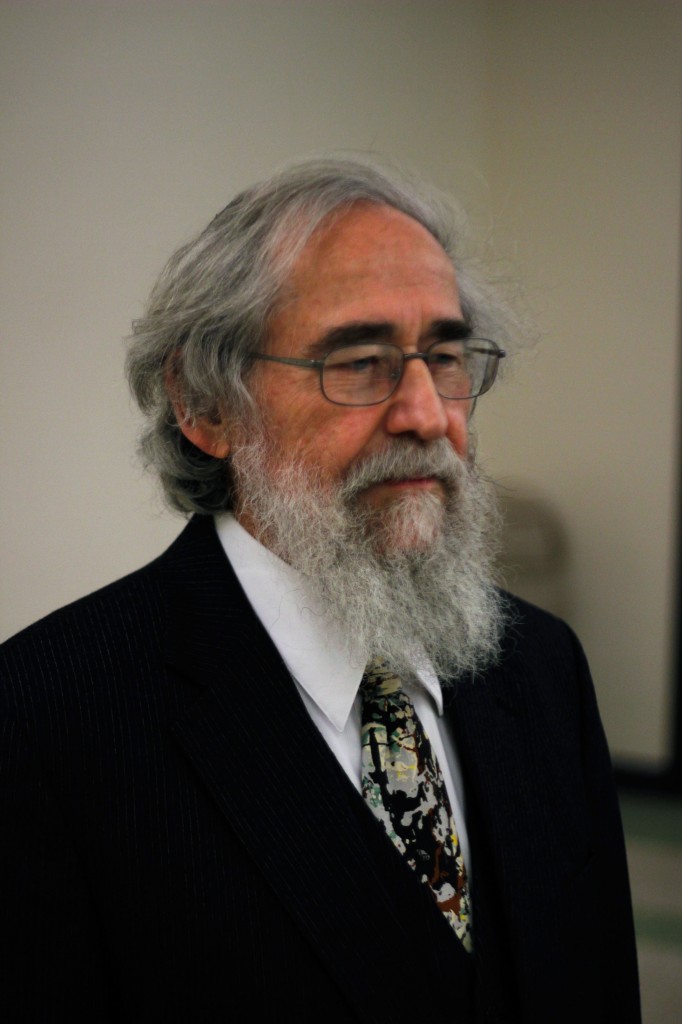
On Friday evening, after Hillel’s weekly Shabbat dinner, the doors of the Chenango Room opened to hear a story of civil rights, religion and putting aside differences to do what’s right.
Rabbi Saul Berman, a professor at the Columbia University School of Law and named one of 50 most influential Rabbis by Newsweek, came to speak about the civil rights movement in America. He talked about his time in Selma during the 1965 march for equality, which he attended with members of his congregation who had been working on desegregating Berkley schools.
Hundreds of members of the community were joined by outsiders such as Berman in a march through the white neighborhoods of Selma. They stood outside Selma Mayor Joseph Smitherman’s house to demand racial justice and were eventually arrested for protesting in a white neighborhood, which was illegal at the time.
Selma was violent, Berman said, and he described how a police officer came close to beating him with a baton. He also explained that protesters understood the importance of their actions: At one point, officials offered to drop the arrests of Berman and his peers if they agreed to leave the city, but Berman said they could not because the protest was bigger than him and his congregation.
“The reality was that there was a white leadership that was enormously supportive of this effort,” Berman said. “But nevertheless, the black community in Selma at that time needed to realize that they have to be the masters of their own faith or else they will not become free.”
BU Hillel Rabbi Akiva Dovid Weiss said Berman offered to speak at BU as part of his circuit of university talks this year. Weiss said Berman’s talk was beneficial for the entire campus, not just Jewish students, because civil rights affect everyone.
“This really was such a profound story about activism and how to make a difference,” Weiss said. “It really crosses so many divides, not just religion. It speaks to so many people to hear a story like this.”
Naomi Barnett, a junior double-majoring in business administration and English, was one of approximately 60 attendees. She said she appreciated hearing from a man who combines his religious beliefs and morality to do what he thinks is right.
“It is important to see progressive adults from all walks of life in order to show our campus community that no one is tied down to a box or label,” Barnett said. “Rabbi Berman is still committed to social equality and justice. However, he is also fully in touch with his Jewish faith and traditions, yet allows the two to complement each other instead of contradict, as too many do.”
Weiss said that he was happy with the message Berman left the students.
“I think that the main thing is that students should feel inspired that they can make a difference,” Weiss said. “I think students left with that feeling, they left with the ability to impact and I think that is a very important and profound message.”
On the 50-year anniversary of the Selma march, Berman said it is important that people understand how important it is to make contributions to causes such as this, and that many of the racial issues he protested against in 1965 still exist today.
“I don’t perceive myself into thinking that I personally made any contributions to the welfare of the black community in the United States or to the resolution of the civil rights situation,” Berman said. “But I know that at least I raised my voice, and I was present at a critical moment that may serve to inspire people 50 years later.”


